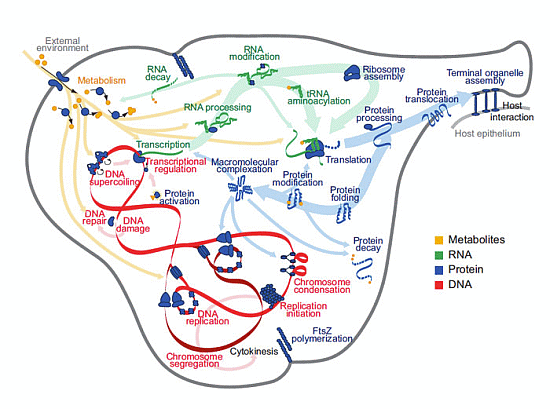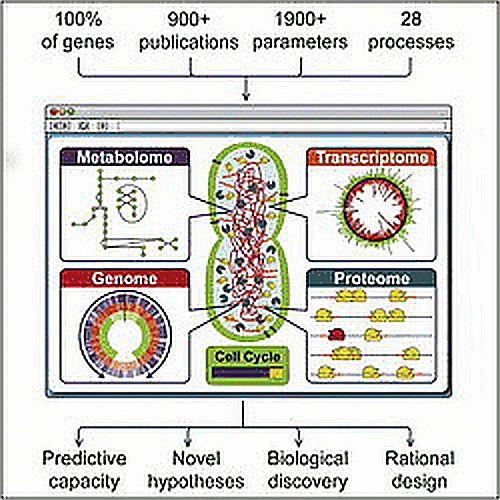I think we need to watch a video by Friend of UD, Kirk Durston.
But first, a loop-back note: I have been rather busy elsewhere with issues like AS-AD, Kondratiev waves, Hayek’s investment triangle, SD and Schumpeterian creative destruction.(Pardon the resulting absence.)
BTW, this line of thought leads me to hold that the oh- so- dominant . . . and too often, domineering . . . evolutionary materialism of the past few generations has run its course and is about to be overtaken by ideational creative destruction in an information age. A patently superior idea — we live in an obviously designed world, and we and other living creatures show further compelling signs of design — is going to prevail, never mind what the materialist establishment entrenched in key halls of power thinks.
Never mind the scorched earth bitter ender retreat.
Sooner or later, for instance, it is plain that a critical mass of people will put two and two together on the world of life and realise that we are looking at an utterly sophisticated, subtle and algorithm-rich, code using molecular nanotech system when we look at the living cell.
You don’t have to take my word for this, reflect for a few moments on what Stanford investigators have shown and said about our old friend M. genitalium:
 {Let’s add an image from the project site (HT: Mung) giving the context of the Sim:}
{Let’s add an image from the project site (HT: Mung) giving the context of the Sim:}
A mammoth effort, led by bioengineer Markus Covert, has produced a complete computational model of the bacterium Mycoplasma genitalium, opening the door for biological computer-aided design
In a breakthrough effort for computational biology, the world’s first complete computer model of an organism has been completed, Stanford researchers reported in the cover story of the current issue of Cell.
A team led by Stanford bioengineering professor Markus Covert made use of data from over 900 scientific papers to account for every molecular interaction that takes place in the life cycle of Mycoplasma genitalium – the world’s smallest free-living bacterium.
By encompassing the entirety of an organism in silicon, the paper fulfills a longstanding goal for the field. Not only does the model allow researchers to address questions that aren’t practical to examine at the bench, it represents a stepping-stone towards the use of computer-aided design in bioengineering and medicine . . . . Mycoplasma genitalium is a humble parasitic bacterium, known mainly for showing up uninvited in human urogenital and respiratory tracts. But the pathogen also has the distinction of containing the smallest genome of any free-living organism – only 525 genes [–> 525 genes, not bits!], as opposed to the 4,288 of E. coli, a more traditional laboratory bacterium . . . .
Despite the difficulty of working with this sexually transmitted infection (STI), the minimalism of its genome has made it the focus of several recent bioengineering efforts. Notably, these include the J. Craig Venter Institute’s 2009 synthesis of the first artificial chromosome.
“The goal hasn’t only been to understand M. genitalium better,” said co-first author and Stanford biophysics graduate student Jonathan Karr. “It’s to understand biology generally.”
Even at this small scale, the quantity of data that the Stanford researchers incorporated into the virtual cell’s code was enormous. The final model made use of more than 1,900 experimentally determined parameters.
To integrate these disparate data points into a unified machine, the researchers modeled individual biological processes as 28 separate “modules,” each governed by its own algorithm. These modules then communicated to each other after every time step, making for a unified whole that closely matched M. genitalium’s real-world behavior . . .
As in, reverse engineering a living cell. For simulation purposes. And in a context where intelligent design of cells or sub-systems in the cell is a reality. As in, vera causa.
So, I have every right to highlight the key words above, and to infer their significance.
And, all of this is in a world — an observed cosmos — where, from basic fine tuned physics on up, the world sets a base for such cell based life. Just consider how the first four elements in abundance are H, He, O, C, the latter pair being due to the resonance that so struck Sir Fred Hoyle from the 1950’s on. Stars, the periodic table, water, organic chemistry, beyond, N is close to this level, and that gives us proteins. With the elegant sophisticated simplicity of the water molecule, locked into core parameters of our cosmos, is itself a clue. All tied into the core physics of the cosmos we live in — the only one we actually observe.
In that context, Durston’s video is well worth reflecting on as food for thought:
[vimeo 64365800]
As his videos page comments:
God and Science – Is there a Conflict?: There is a popular notion that as science advances, religion retreats. This is true of Greek mythology and superstitious beliefs, but is it true of Christianity? In this lecture given March, 2013 at Wilfrid Laurier University-Laurier Brantford, biophysicist Dr. Kirk Durston shows that science has not only failed to push back the major claims of Judeo Christianity [–> i.e. Judaeo-Christian theism] pertaining to God and nature but, surprisingly, as science advances the evidence in support of the major claims has actually increased.
Food for thought. So, now, let us think together. END
